Boost productivity with coded automation and UiPath Autopilot™
Share at:

Code versus low-code in software test automation
Editor's note: UiPath Test Suite has evolved. Explore the latest in agentic testing on our website.
When it comes to software test automation, the debate between using open-source tools like Selenium or Playwright and opting for low-code solutions is ongoing. Both approaches have their advantages, and the right choice often depends on your specific needs and team skills.
Low-code automation is designed to be inclusive, making it accessible to users with less technical expertise.
On the other hand, code-based automation offers unmatched flexibility and customizability. Experienced developers can create highly tailored and complex testing scenarios that are difficult to achieve with low-code solutions.
Automating the UI bank app
Let's consider automating tests for the UI Bank app, a web application for managing accounts and applying for loans.
Below you can see a typical Selenium script to automate this workflow.
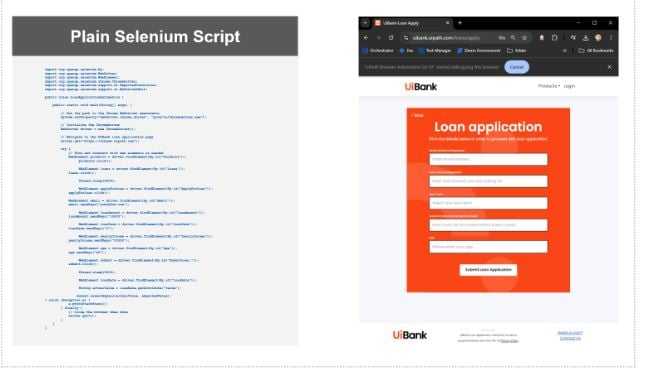
What is the problem with this approach?
This script lacks stability, modularity, and maintainability. This is basically spaghetti code—hard to read, with no reusable blocks, and highly redundant code.
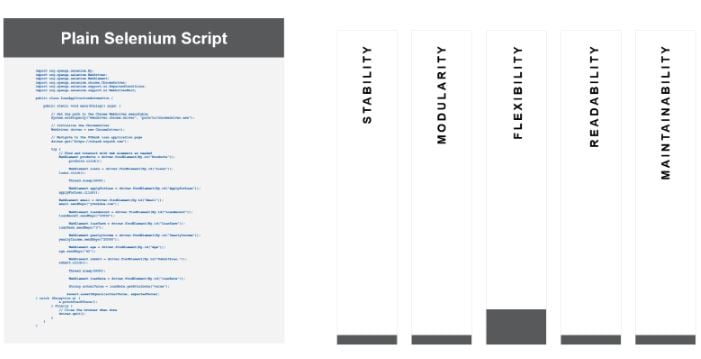
To refrain from these pitfalls, seasoned developers build frameworks around their tests in order to centralize error handling. In this sense they introduce synchronization mechanisms and recovery scenarios. Another step they take is to extract element identification information into a central repository and introduce a data-driven test approach. The consequence is that they separate test logic from the actual data used.
However, building a robust framework with open-source tools requires significant effort and constant maintenance. If your project expands to other technologies like Java,.NET desktop apps, mobile apps, or SAP systems, the effort to adapt your framework can be substantial.
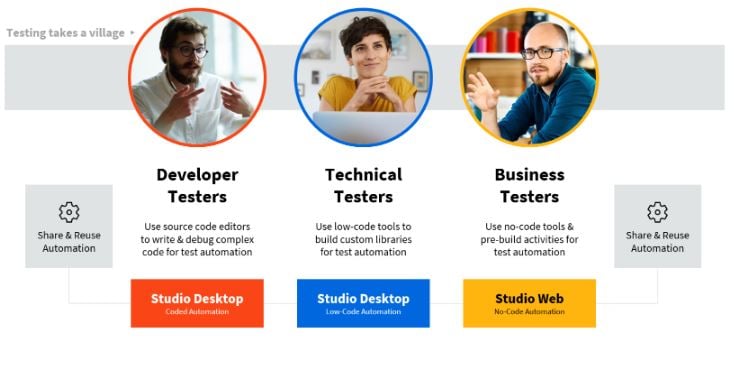
UiPath Test Suite™ offers a comprehensive solution, supporting any UI or API target application. It features advanced synchronization mechanisms, sophisticated targeting methods, and easy management for large portfolios. UiPath allows a mix of coded and low-code automation, depending on your team’s preferences and skills.
Coded automation in UiPath
UiPath supports C# for writing automation scripts, leveraging the.NET framework's vast capabilities. This allows you to automate any UI, Excel, Word, Mail, and more. UiPath also includes features for low-code automation, such as the Object Repository and templates.
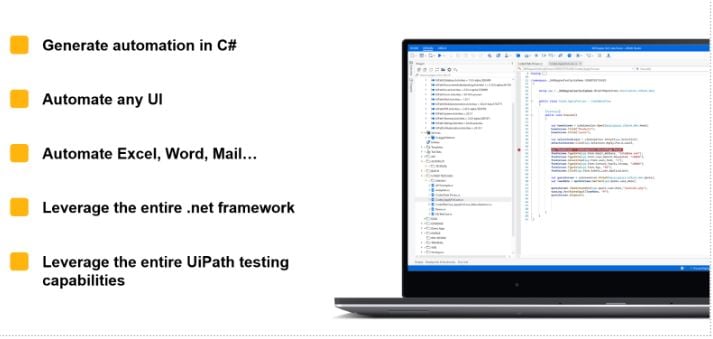
Boost productivity with UiPath Autopilot™
UiPath Autopilot™ for testers integrates advanced AI capabilities to enhance testers' productivity throughout the entire testing life cycle.
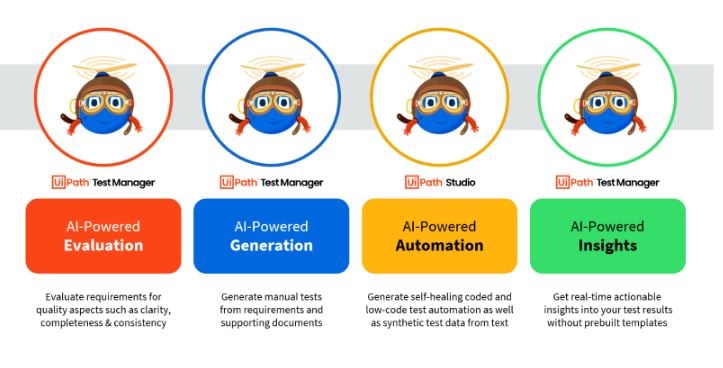
Autopilot™ for testers can:
Evaluate requirements for quality aspects
Generate manual test cases and test steps
Generate test automation and synthetic test data
Provide insights into test case failures
Together with coded automation, this offers advanced test developers a variety of capabilities to enhance their productivity.
Test automation
You can convert your manual test case into a fully functional automated test script in a matter of a few clicks.
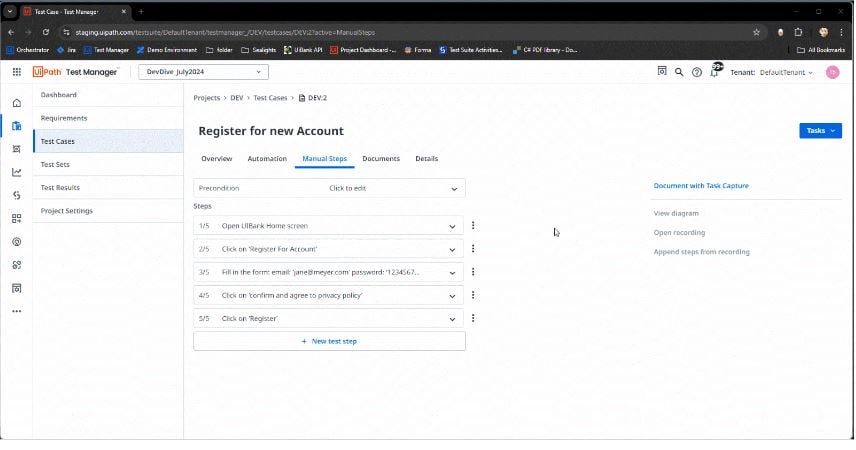
Text to code
You can generate code for your test scenario from any textual description.
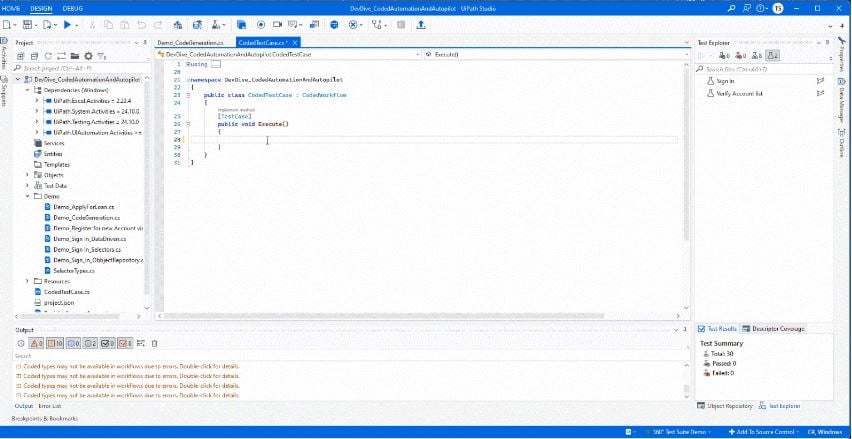
Refactor code
You can take existing code and prompt Autopilot™ to refactor it.
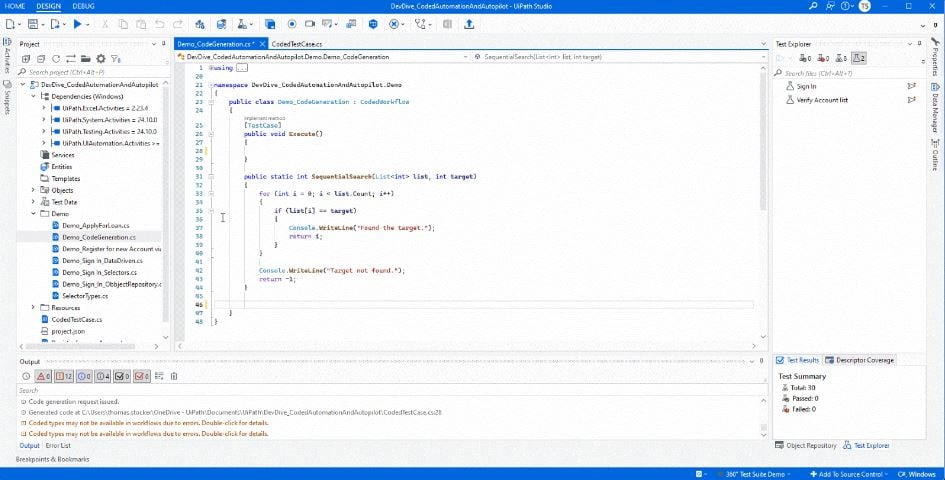
Test data generation
Autopilot™ can generate synthetic data for your test scenarios.
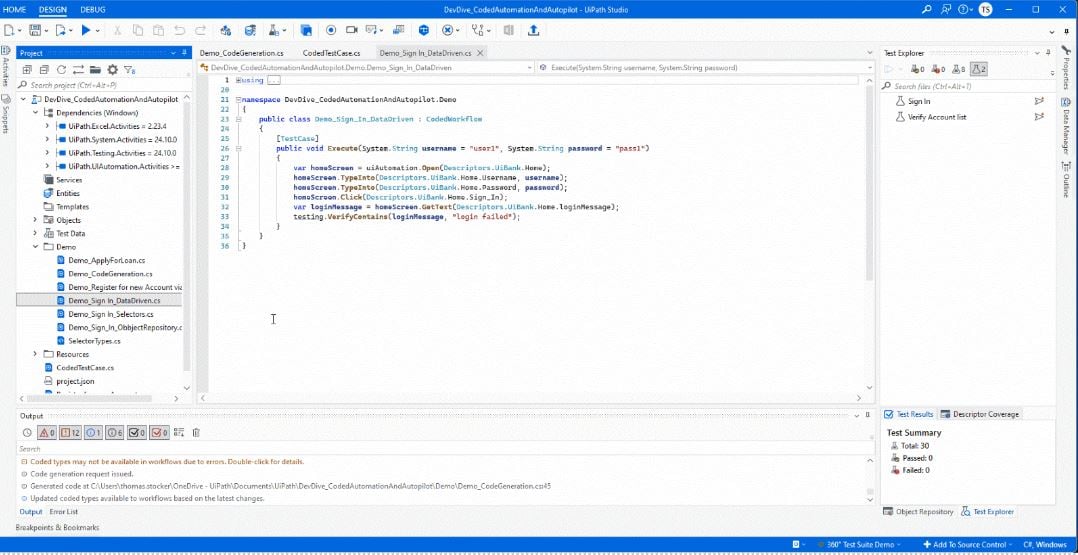
Conclusion
Both low-code and code-based approaches have their place in test automation. The best choice depends on your project requirements and team capabilities. UiPath Test Suite™ offers a flexible, powerful solution that combines the strengths of both approaches, along with AI-powered tools to streamline your testing process.
To learn and try out these capabilities, head over to UiPath Academy and attend the free courses: Coded Automation for Testers and Autopilot™ for Testers.
Happy coding!
Topics:
Test AutomationProduct Manager Test Automation, UiPath
Get articles from automation experts in your inbox
SubscribeGet articles from automation experts in your inbox
Sign up today and we'll email you the newest articles every week.
Thank you for subscribing!
Thank you for subscribing! Each week, we'll send the best automation blog posts straight to your inbox.



